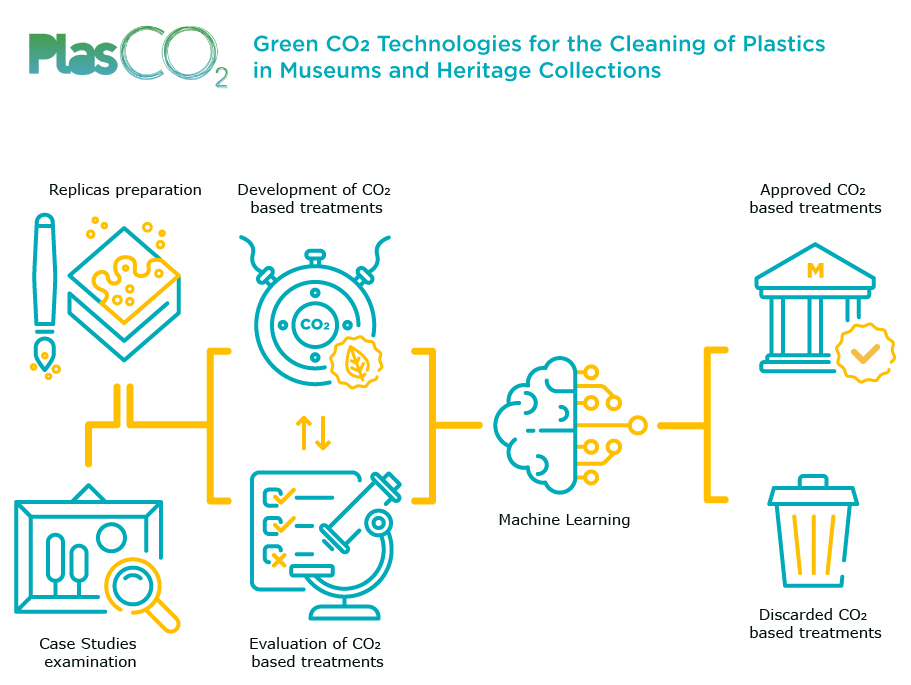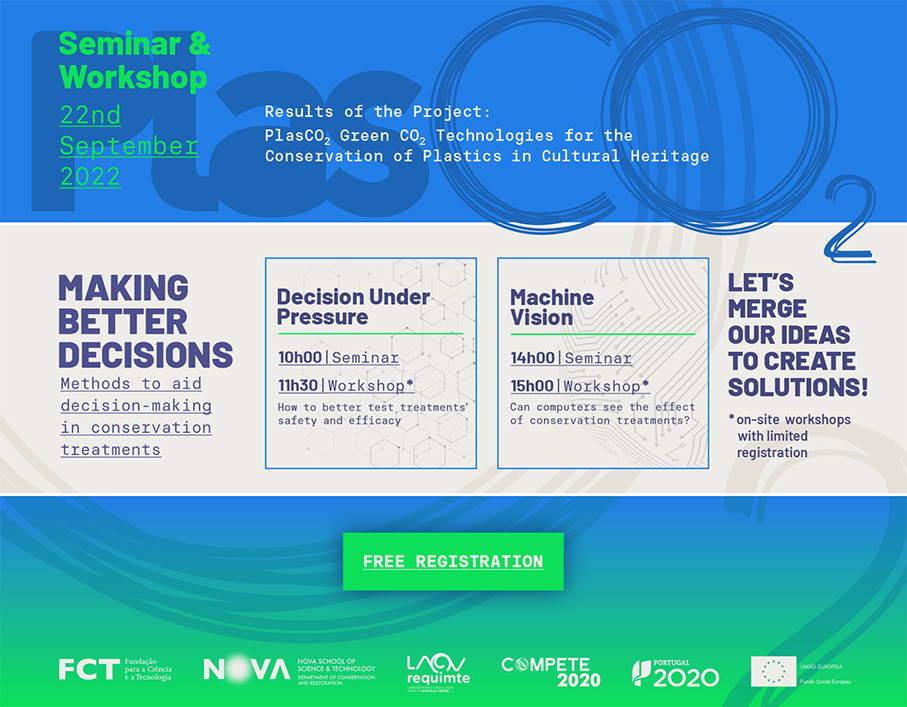HOME

|
PlasCO2 is a 3-year research project (2018-2021) financed by the Portuguese Foundation for Science and Technology (FCT - Fundação para Ciência e a Tecnologia). The project explores the use of Carbon Dioxide (CO2) - in liquid or supercritical phase - for the preservation of modern and contemporary works of art. The final aim is to design environmentally friendly cleaning and conservation protocols based on CO2 technology for plastic materials, namely Polyurethanes (PUR), foam/rubber-based materials, poly(methyl methacrylate) (PMMA) and others. Extensive trials are performed on the mock-ups using a variety of parameters (CO2 phase and density) and conditions (pressure, temperature, use of co-solvent, exposure time). A Machine Learning model will be used in conjunction with the experimental work to correlate the physical and chemical properties of the selected materials, the conditions of the CO2 treatments, and the observed outcomes. Using this approach will enable to highlight the most promising and suitable CO2 conditions, which can be then further fine-tuned to meet conservation standards. |
HOME

|
PlasCO2 is a 3-year research project (2018-2021) financed by the Portuguese Foundation for Science and Technology (FCT - Fundação para Ciência e a Tecnologia). The project explores the use of Carbon Dioxide (CO2) - in liquid or supercritical phase - for the preservation of modern and contemporary works of art. The final aim is to design environmentally friendly cleaning and conservation protocols based on CO2 technology for plastic materials, namely Polyurethanes (PUR), foam/rubber-based materials, poly(methyl methacrylate) (PMMA) and others. Extensive trials are performed on the mock-ups using a variety of parameters (CO2 phase and density) and conditions (pressure, temperature, use of co-solvent, exposure time). A Machine Learning model will be used in conjunction with the experimental work to correlate the physical and chemical properties of the selected materials, the conditions of the CO2 treatments, and the observed outcomes. Using this approach will enable to highlight the most promising and suitable CO2 conditions, which can be then further fine-tuned to meet conservation standards. |










